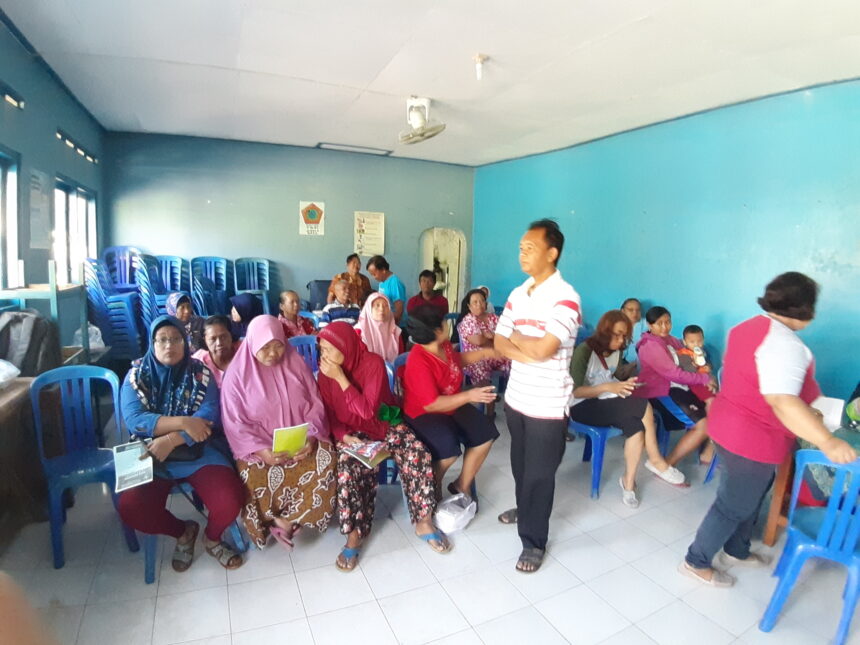Background
The Scaling-up NCD Interventions in South East Asia Programme (SUNI-SEA) is a four-year action research programme taking place in Indonesia, Myanmar, and Vietnam. The intention of the project is to develop a set of evidence-based guidelines and instruments in the area of non-communicable diseases to be used in South East Asia. SUNI-SEA works with the Governments of Indonesia, Myanmar and Vietnam, to strengthen their upscaling activities in NCD prevention and management.
SUNI-SEA aims to create synergies between disease prevention and management at community level. The project also wants to achieve synergy between community and primary healthcare facility-based activities.
Progress
In the first year, the project analysed the situation in each location. We made an inventory of what is happening in each country in NCD prevention and control and compared this with findings in the literature of what is effective and what is cost-effective. We drew lessons learned from each country and made an inventory of strong and weak points. Based on the findings we produced recommendations for the implementation of community-based and primary healthcare activities in the prospective phase of SUNI-SEA.
Key lessons learnt
Indonesia, Myanmar and Vietnam have all primary healthcare (PHC) interventions and community-based Interventions (CBI) in place. In communities, there is health promotion and prevention, e.g. screening-activities and lifestyle interventions. In health facilities, there is early diagnosis and medical treatment. In general, countries aim at making funding for NCD prevention and control available through health insurance though with varying degrees of coverage at present.
NCD strategies in Indonesia, Myanmar and Vietnam are based on international evidence of what is effective (for example PEN interventions). Many of the activities in the three countries are aligned with findings and recommendations from international literature. However, verification of the relevance of international evidence for local circumstances is not always available. For optimal impact, further development of local knowledge is very much needed.
In practice, NCD programmes are implemented in communities and primary healthcare, sometimes at as national programmes (Indonesia), sometimes as experimental programmes (Vietnam). Participation in screening and health promotion activities is not optimal in the three countries. Even where services are offered, younger people and men are less inclined to use them. There is a need to reach more people including the most vulnerable, with an expanded number of NCD services.
There is promising evidence on the effectiveness of the use of community resources. Generally, community interventions were found to be more effective than individual interventions. One possible reason for this is that peer support leads to a stronger personal commitment to participation and therefore improved health outcomes.
The services provided are not always of the required quality, both in communities as primary health care. Competencies of community volunteers or health staff are not always sufficient, and medicines and equipment are not always available. There is a need to develop training for volunteers, including e-learning opportunities. There is a need to map the PHC services, mandates and capacities of health workers in countries in order to tailor capacity building to the needs of each location.
There is an opportunity, across all locations to improve the synergy between PHCFI and CBI in order to improve the effectiveness and cost-effectiveness of programmes.
Further reading
Recommendations
- Enhance the empowerment of community members, as it is effective in improving health, probably by influencing self-efficacy. Important prerequisite to reach this aim is trust between community members and professionals, cadres, or community volunteers.
- Implement capacity building activities, both in PHC and community-based programmes. Capacity-building should fit within the local conditions and structures.
- Invest in community-based interventions, because they have the potential to increase uptake of important preventative health measures including screening and provision of health education. The role of Community Health Workers or Volunteers is crucial. They can be liaison persons between primary health care and communities, especially in rural areas. Therefore, investments should be made in their knowledge and skills.
- Develop concrete guidelines for professionals and health volunteers to effectively implement comprehensive NCD screening, prevention and control adapted to the country-specific circumstances. E-learning and internet-based information are becoming more and more relevant.
- Stimulate community groups in controlling NCDs. Engaging smaller groups of people with high-risk factors will be important to achieve success. Family and peer support should be enhanced for ensuring uptake of health-seeking behaviours and self-management in health.
- Improve access to information at a population level, in the face to face education, in mass media campaigns and in internet-based information.
- Apply an integral approach as in the Chronic Care Model. This means for instance that there must be follow up after screening and treatment and that communities and primary health centres must work together. Actively provide reminders for appointments in order to increase uptake of screening, attendance in health courses, as well as adherence to treatment.




